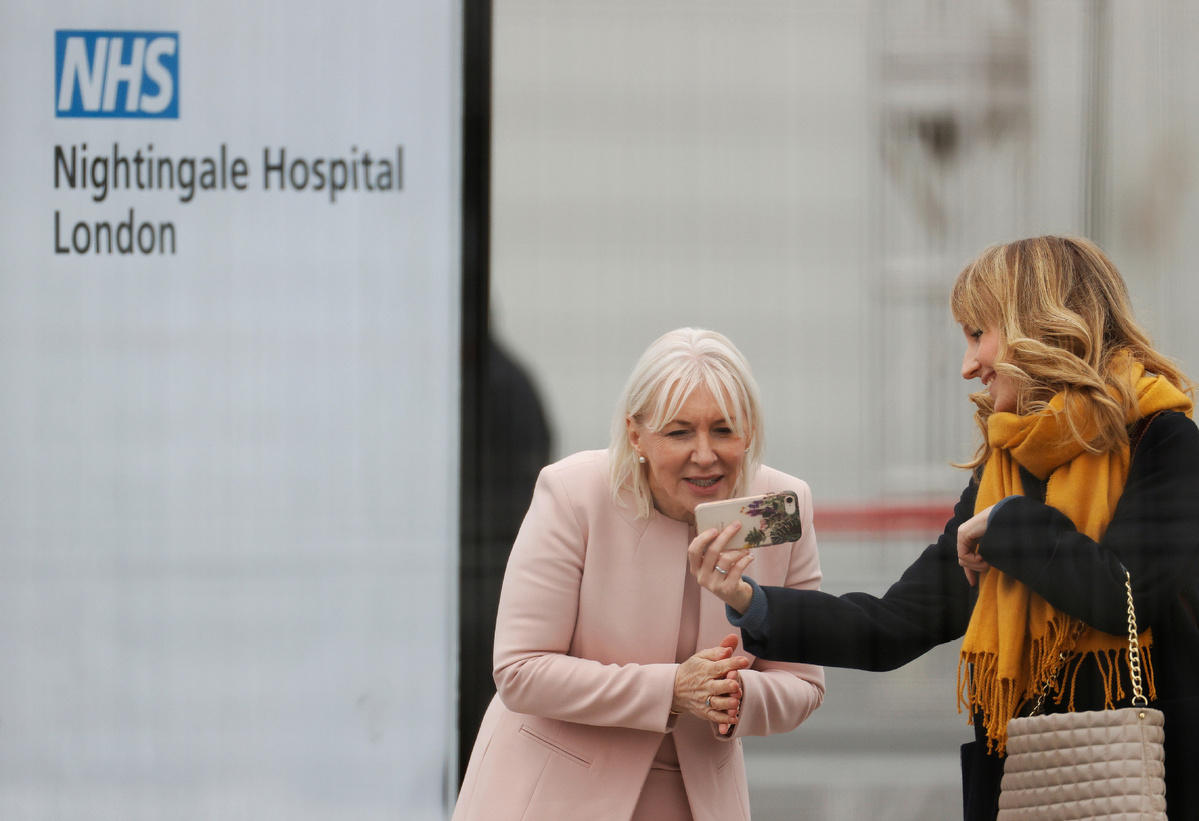NHS rejects tech giants for its contacts app


Centralized virus tracking system could be made operational within a few weeks
The United Kingdom's National Health Service has decided it will run its upcoming novel coronavirus contact-tracing app via centralized British servers-rather than through a framework created by Apple and Google.
The CEO of the NHS tech unit NHSX, Matthew Gould, said the new application would launch "in the coming weeks", and stressed it "could be important in helping the country return to normality and beating (novel) coronavirus".
Google and Apple joined forces earlier this month to turn smartphones into novel coronavirus-tracking devices, and their system is decentralized to protect privacy.
No movement or tracking information would be stored on a central server, meaning it would be invisible to Google, Apple and the NHS.
But NHS officials believe their own centralized app will provide better insight into the spread of COVID-19 and help flatten the curve of infections.
Christopher Fraser, an epidemiologist advising NHSX, told the BBC that one of the advantages of their system is that it is easier to audit and adapt as scientific evidence accumulates.
"The principal aim is to give notifications to people who are most at risk of having got infected, and not to people who are much lower risk. It's probably easier to do that with a centralized system."
But security experts have warned there are significant privacy implications that could provide the blueprint for unethical mass-surveillance once the pandemic ends.
Alan Woodward, from the Surrey Centre for Cyber Security at the University of Surrey, said Apple and Google do not want to assist in developing a system that effectively tracks users and could later be adapted to spy on the population.
He told the PA news agency: "There may be some pushback, I think-the simple way to put it-because what Apple does not want is somebody building a system that could be used as a tracking system, a generalized tracking system.
"Could someone, later on, build technology along the same principles just to use Bluetooth to track people? iOS particularly was built, and Android's later versions, are built so that you cannot do that."
In Europe, only France, and now Britain, have come out as supporters of a centralized system. Australia is believed to also be running a centralized app.
With high adoption of the app among populations being a critical factor, Switzerland, Austria, and a pan-European group called DP3T are all backing a decentralized app, as advocated by Google and Apple.
Germany had previously sided with Britain and hoped to create its own centralized app. But on Sunday, the German government performed a dramatic U-turn and is now heading toward a decentralized version.

































